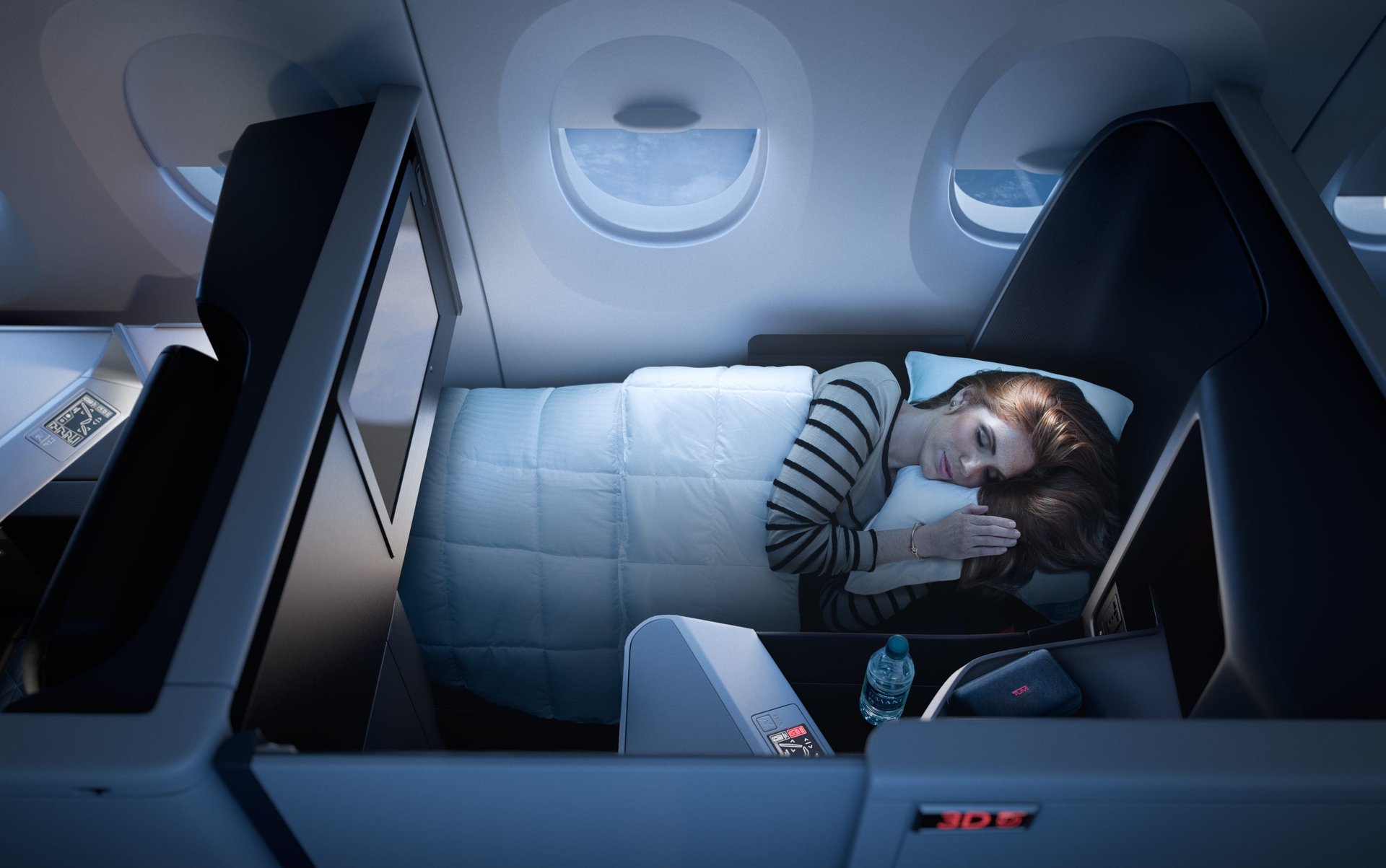Delta is building suites for business class, and it could make in-flight luxury cheaper on all airlines
Delta is taking business class private.


Delta is taking business class private.
The airline is adding doors to its flatbed seats on international Delta One cabins, taking a page from the playbook of carriers like Singapore Airlines, Etihad and Emirates, which offer suites in first class. It’s also adding memory foam cushions and 18-inch, high-resolution monitors. The new business-class cabin will have what Delta calls ”residential feel.”
By further blurring the line between business class and first class, Delta’s move puts more pressure on competitors that already offer suites in first class and on rivals’ business class offerings. It could force them to lower fares for the front of the cabin to compete. Delta currently sells its Delta One business-class cabin and no separate first class service on most of its international routes, except for flights to and from the Caribbean, Canada and Central America.
Delta’s new cabin design will compete with carriers such as United, which in June unveiled sleeping pods instead of seats for its new business-class product, Polaris, as a move to give passengers on overnight flights a good night’s sleep. Redesigned seating is the latest chapter in airlines’ fight for high-paying customers as economy-class fares sink due to an oversupply of seats.
Delta’s new suites will first be available in late 2017 with 32 of these seats available aboard Delta’s Airbus A350. The airline hasn’t determined which routes will offer suites, but it flies Airbus A350 planes mainly between the US and Asia. Delta will offer the cabin on its Boeing 777 fleet later.
While Delta’s new suites won’t be nearly as large as some of the international carriers’ first-class cabins (Etihad calls its product “apartments” and offers passengers a shower) it puts pressure on carriers to come up with new ways to impress well-heeled customers.
Delta, for its part, which suffered a crippling computer outage last week that grounded hundreds of flights, will want to make sure its technology is working as flawlessly as the suites’ customizable, ambient lighting.